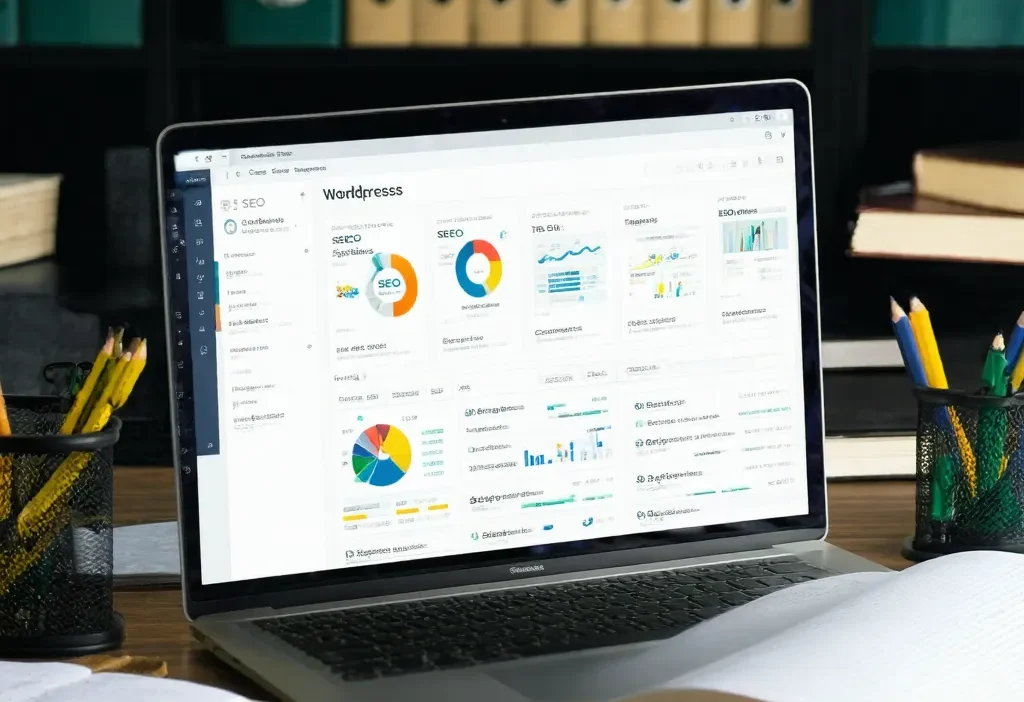Why WordPress SEO Optimization Matters
In today’s digital landscape, having a well-optimized WordPress site is not just an advantage—it’s essential. SEO (Search Engine Optimization) plays a pivotal role in driving organic traffic, improving user experience, and ultimately boosting your website’s visibility on search engines like Google. But how do you ensure your WordPress site stands out amidst the competition? Let’s dive into actionable strategies that can help you supercharge your WordPress SEO performance.
1. Choose the Right WordPress Theme
Your choice of theme can significantly impact your SEO efforts. Look for themes that are mobile-friendly, lightweight, and optimized for search engines. Themes with built-in SEO features like structured data markup or proper heading tags can give you a head start. Avoid overly complex themes that might slow down your site.
2. Install Essential SEO Plugins
WordPress plugins are your best friends when it comes to SEO. Plugins like Yoast SEO, All in One SEO Pack, and Serious WordPress SEO provide powerful tools for optimizing your content, improving site speed, and enhancing user experience. These plugins offer features like keyword analysis, meta tag optimization, and XML sitemap generation, all of which are crucial for strong SEO performance.
3. Optimize Your Content Strategy
Content is king in the world of SEO. Focus on creating high-quality, engaging content that addresses your audience’s needs and preferences. Use keyword research tools like Google Keyword Planner or SEMrush to identify relevant keywords for your niche. Incorporate these keywords naturally into your content, but avoid overstuffing as it can harm your rankings.
3.1 The Importance of Long-Form Content
Long-form content tends to perform better in search engine rankings. Aim for articles that are at least 600 words long, providing comprehensive insights into your topic. Break down complex information into digestible chunks using headers, subheaders, bullet points, and images. This not only improves readability but also helps search engines understand the structure of your content.
4. Enhance Site Speed
A slow-loading website can drive visitors away and negatively impact your SEO rankings. Optimize your site’s speed by compressing images, minimizing CSS and JavaScript files, and leveraging caching plugins like W3 Total Cache. Consider upgrading to a high-quality hosting provider that offers fast loading times and reliable uptime.
5. Improve Mobile Optimization
With Google’s mobile-first indexing, having a responsive website is no longer optional—it’s mandatory. Ensure your WordPress site is fully responsive, adapting seamlessly to different screen sizes. Test your site on various devices using tools like Google Mobile-Friendly Test to identify and fix any issues that might affect user experience.
6. Utilize Internal Linking Strategies
Internal linking not only improves navigation for users but also helps distribute link equity across your site, boosting its overall SEO performance. Link to relevant content within your articles using descriptive anchor text. This practice can enhance user engagement and help search engines understand the hierarchy of your content.
7. Leverage Structured Data
Structured data helps search engines interpret your content more effectively, leading to richer snippets in search results. Use plugins like Yoast SEO or Schema Pro to add structured markup to your pages. Common types of schema include articles, products, and services.
8. Monitor Your Performance
To refine your SEO strategy continuously, you need to monitor your site’s performance regularly. Use tools like Google Analytics to track traffic sources, user behavior, and conversion rates. Additionally, keep an eye on your rankings using tools like Ahrefs or Screaming Frog. Analyzing this data can provide valuable insights into what’s working and what needs improvement.
9. Stay Updated with SEO Trends
SEO is an ever-evolving field, so it’s crucial to stay updated with the latest trends and algorithm updates. Follow reputable SEO blogs like Moz, Ahrefs, and Search Engine Land. By staying informed, you can adapt your strategies to meet changing search engine guidelines and user behavior patterns.
10. Conclusion: The Road to SEO Success
Optimizing your WordPress site for SEO is a continuous journey rather than a one-time task. By following the tips outlined in this guide—choosing the right theme, installing essential plugins, creating high-quality content, enhancing speed and mobile optimization—you can significantly improve your site’s SEO performance. Remember, consistency and adaptability are key to achieving long-term success in SEO.





